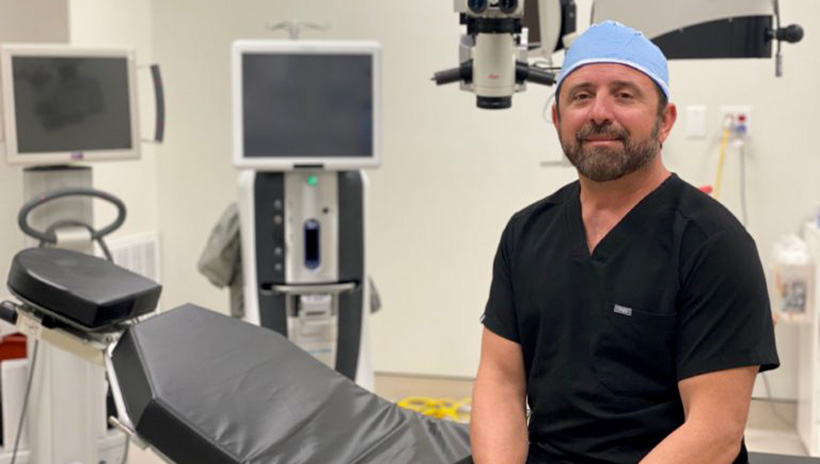Publisher's Note: This post appears here courtesy of the
Carolina Journal. The author of this post is
Johnny Kampis.
Dr. Jay Singleton can't perform a five-minute cataract surgery without admitting his patients to a hospital. | Photo: Contributed
Legislation introduced in this session of the General Assembly seeks to reduce restrictions created by certificate of need laws, which critics say reduce access to health care and increase costs.
Bills in the General Assembly have been filed with the intention of doing everything from making minor changes to complete repeal.
Certificate of need laws require health care providers to obtain permission before expanding or offering new services. Advocates of the laws argue this can prevent unqualified providers from performing substandard care, but detractors say CON laws help entrenched providers keep competition out of the market. The laws have been put in place to help prevent duplication of services in a move to help keep health care costs down, but critics argue that if existing providers offer a poor level of care, that's bad news for the health of residents.
Jordan Roberts, government affairs associate at the John Locke Foundation, told Carolina Journal that
Senate Bill 462 looks the most promising. That legislation would increase the dollar amount threshold health facilities must spend on various equipment and capital expenses before they are subject to a CON review. The bill ties that amount to inflation.
That bill also creates a deadline for CON holders to complete construction projects. Projects that cost more than $50 million must be started within four years, and facilities that cost less than $50 million must be started within two years.
Roberts said some companies obtain the CON licenses and then "squat" on them to keep competition out.
"I think [SB 462] is a welcome reform and has the best chance of passing," he said.
On the other end of the spectrum,
Senate Bill 309 and companion legislation House Bill 410 look to repeal CON laws completely in North Carolina. Roberts said those types of bills have been filed before and are met with great resistance.
"That is very unlikely to get passed," he said.
"The hospital lobbying group would fight tooth and nail from it ever getting a hearing."
New York became the first state to implement CON laws in 1964, and about two dozen more followed over the next decade. Congress passed an act in 1974 that required states to implement CON regulations to receive funding through certain federal health-care programs. Only Louisiana did not put CON requirements in place after that federal law went into effect.
The federal government repealed that mandate in 1986 after it became apparent the benefits proved not to be as obvious as initially intended.
Fifteen states followed the feds' lead, but North Carolina and 34 states still have CON laws in place.
Research by the John Locke Foundation has determined that CON laws are reducing access to health care. Across the country, the regulations have led to 30% fewer hospitals per capita, 13% fewer hospital beds and 14% longer emergency room wait times.
Johnny Kampis is a freelance writer for Carolina Journal.


























